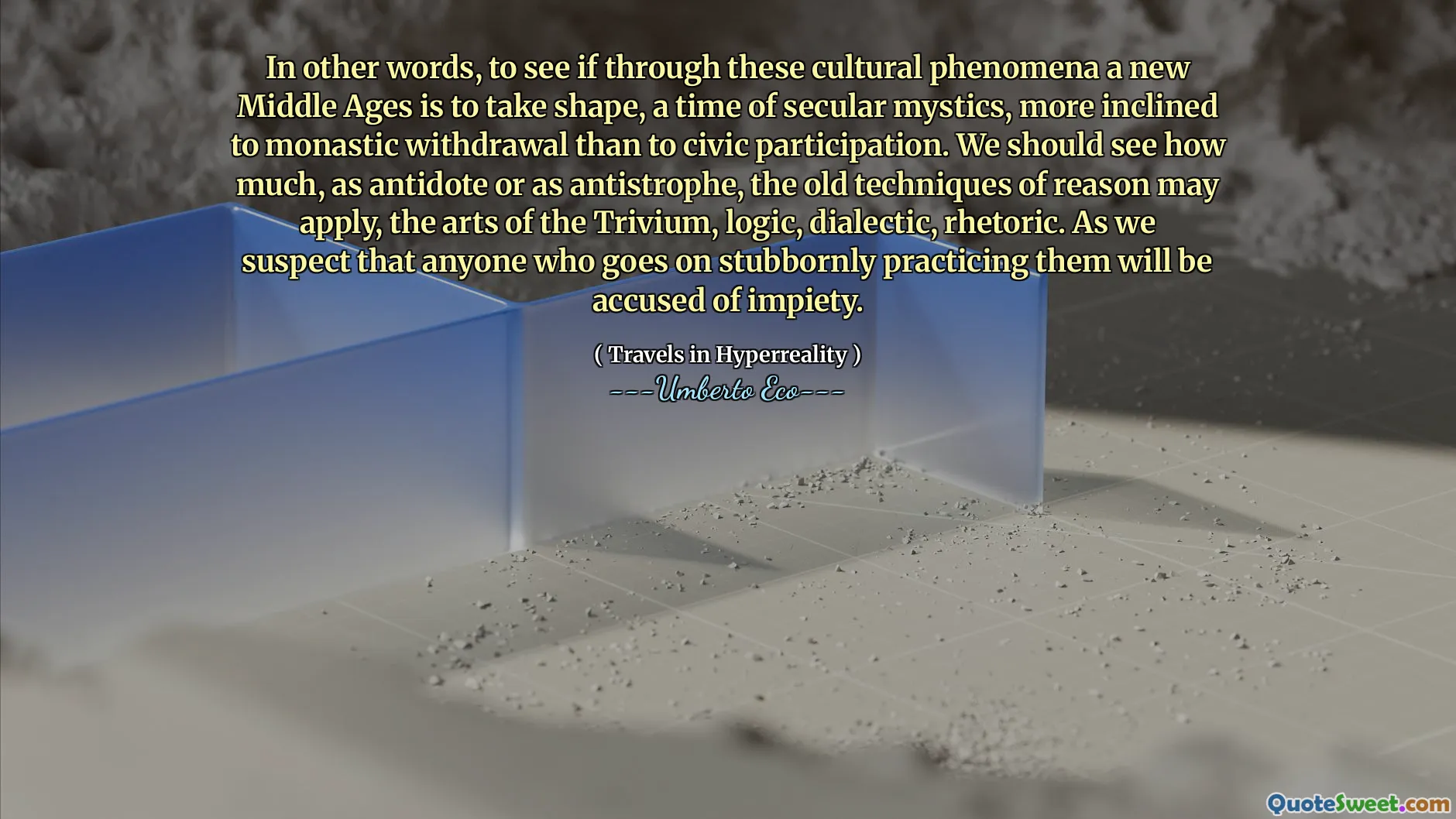
In other words, to see if through these cultural phenomena a new Middle Ages is to take shape, a time of secular mystics, more inclined to monastic withdrawal than to civic participation. We should see how much, as antidote or as antistrophe, the old techniques of reason may apply, the arts of the Trivium, logic, dialectic, rhetoric. As we suspect that anyone who goes on stubbornly practicing them will be accused of impiety.
This passage invites reflection on the cyclical nature of cultural and intellectual history, suggesting that contemporary society might be veering toward a new period reminiscent of the Middle Ages—a time where spiritual or mystical pursuits overshadow civic engagement. The idea that secular mystics, detached from active participation in public life, may dominate hints at a potential retreat from rationalism and an embrace of a more introspective, almost monastic ethos. Eco’s mention of the arts of the Trivium—logic, dialectic, rhetoric—underscores the enduring importance of classical techniques of reasoning and persuasion, perhaps as both a tool and a test in navigating this uncertain era. Is it possible that clinging to these techniques will be perceived as rebellious or impious in a society that favors new paradigms of understanding or alternative narratives? The reflection raises questions about the role of tradition and reason in today's rapidly changing cultural landscape. Are we, consciously or unconsciously, turning away from rational discourse, thus risking a form of societal stagnation or regression? Conversely, could the renewed or cautious application of ancient methods serve as an antidote or salvation? Eco’s warning encourages us to consider how our engagement with the past's intellectual tools influences our present and future, emphasizing that stubborn adherence might lead to accusations of impiety—a metaphor for societal ostracism of those who challenge dominant cultural shifts.






